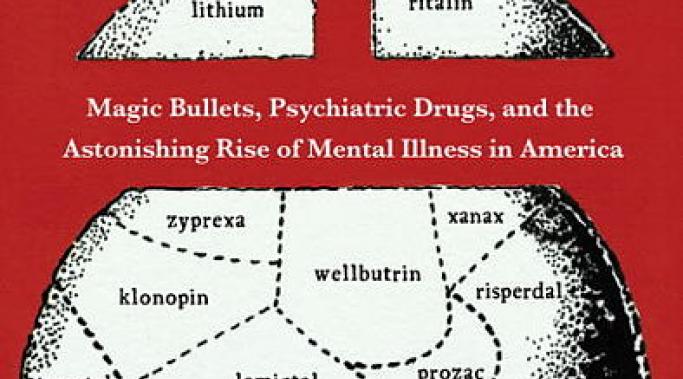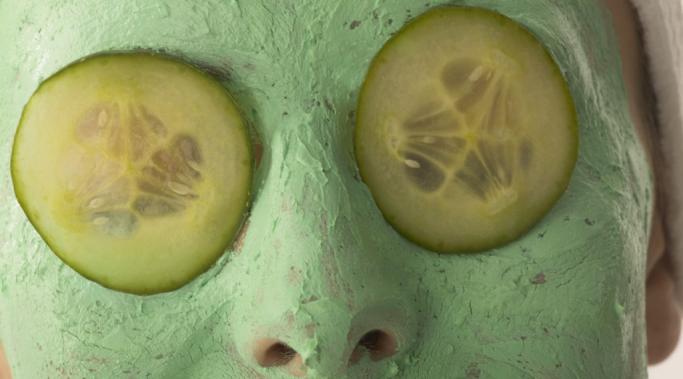I remember, before trying medication, I was terrified of it. I had the same misconceptions that many people do:
Medication is for weak people
Antidepressants are just “happy drugs” designed for people who can’t handle life
Medication will ruin your brain
Doctors give out antidepressants like candy whether you need them or not
As it turns out, none of these things are true, but they sure seemed true at the time.
So I get fear of antidepressants and other medication. Psych medication is scary stuff.
But sometimes you have to face that fear in order to get better.
Myths - Breaking Bipolar
Many people here have read Robert Whitaker’s Anatomy of an Epidemic: Magic Bullets, Psychiatric Drugs, and the Astonishing Rise of Mental Illness in America (New York: Crown Publishers). And some of these people will likely claim that the book changed their lives or, at the very least, their view of psychiatry and psychiatric medication.
Well. Ho there. You would think with such a ground-breaking book I would be all over it.
Guess again.
I refuse to read Anatomy of an Epidemic. And yes, some people will fault me for this. But I have a good reason. I refuse to read Anatomy of an Epidemic as I have no desire to be outraged at a misunderstanding of science for 416 pages.
The Poster Child: Robert Whitaker
Robert Whitaker is the poster-child for antipsychiatry, which is his prerogative. If he enjoys talking to throngs of antipsychiatrists then I say, better him than me.
And part of his criticism of psychiatry is well-deserved. I would say that being concerned with the use, and possibly overuse, of some medications and the prescribing of heavy psychotropic medications to children is quite warranted. I take no issue with the fact that debate and concern is appropriate here.
What I do take concern with is his contention that psychiatric medication actually worsens treatment outcomes and causes disability. This is the reason why antipsychiatrits love him and it’s the reason I probably couldn’t stand to be in the same room as him.
I once wrote a post called, My Bipolar Symptoms Aren't Your Symptoms: I'm More Bipolar Than You. The point of the post is that two people can experience bipolar disorder very differently. Even when two people meet the Diagnostic and Statistical Manual of Mental Disorders (DSM) diagnostic criteria for bipolar disorder, their individual list of symptoms can be quite different. One might be expansive when manic, the other might be irritable. One might sleep too much when depressed, the other might sleep too little. And so on and so forth. Neither one of them is the “right” kind of bipolar and neither one of them is “more” bipolar, they are simply suffering from the same illness differently.
Similarly, treatments are also individual. What works for one person simply doesn’t work for another. And that’s OK.
The name “bipolar disorder” is seemingly self-explanatory. It’s disorder involving the two poles of emotion – depression and mania or hypomania. People often think of this as the poles of “sad” and “happy.” But as any person with bipolar disorder can tell you, mania or hypomania is not necessarily happy at all.
If you’ve been poking around for mental health information for a while you’ve probably seen them: The people who decry psychiatry and all associated therapies. These people come in various shapes and forms but they often call themselves “psychiatric survivors” or “antipsychiatrists.” These are people who claim that psychiatry is evil and psychiatrists are nothing but abusers. These are people that claim that psychiatric medication will cook your brain and that those who use psychiatric services have simply been duped into believing the lies of “big pharma.”
It should surprise no one that I’m not a fan of these people. In my opinion, these people prevent sick people from getting the help they so badly need and they can cost someone their life.
And writing off psychiatry as a field of medicine reminds of refusing to eat Chinese food.
Stigma is something that can be seen outwardly like when a family member avoids you due to your depression or you’re passed over for a promotion because your coworkers discovered you’re diagnosed with schizophrenia. It’s also seen in public perceptions as noted in the Surgeon’s General report where 60% of people felt like people with schizophrenia behaved violently.
But the biggest danger of mental health stigma is when it’s felt inwardly. Because no matter how unfairly people treat you ourwardly, it’s nothing compared to the effects of feeling the stigma inside.
I don’t remember most Christmases; they tend to blur together in a sea of turkey, denial and wrapping paper. But the Christmas of 1998 was different. That Christmas was the one just before I began medication. That was the one I spent lying on the couch with bandaged arms.
Looking back 1998 should have been a good year for me. I had completed an 8-month work term for my university degree, I had some money for the first time in a long time and I went backpacking across Europe. But unfortunately, 1998 was the year that bipolar decided to attack full-force. I spent the end of 1998 slicing and dicing and sobbing and begging for mercy. From what, exactly, I have never been able to say, but from whatever was causing the pain whatever made it impossible to move from my mother’s couch as the activities of Christmas went on around me.
But in spite of this I had no intention of seeing a doctor and I most especially had no intention of seeing a psychiatrist. Those people were nothing but pill-pushers, nothing but drug dealers with letters after their name. And everyone knew that depression wasn’t a real disease and that anyone with real strength of character could overcome mental anguish on their own – not with the crutch of pharmaceuticals.
There is a persistent myth that having bipolar disorder means you have a “broken identity,” or even, “split personality.” I would imagine the term “manic depression” (an older term for bipolar disorder) conjures up these images for some people. But I’m here to tell you, my identity is just fine as is my personality.
I've been studying mental illness for a long time and while I knew the answer to this question, I couldn't really have told you why. This is mostly because I haven't done a lot of work on personality disorders, but I have had occasion to learn more about them recently.
No, bipolar disorder is not a personality disorder, and here's why.
Last week I wrote about how fighting bipolar disorder is like fighting an invisible enemy. And I suggested that creating an internal visual of an "enemy" was a helpful way of differentiating the sick person from the illness itself.
I think stigma is similar. We can let stigma, or thoughts thereof, get into our heads. We can start to believe the ignorant judgements of others and we can let stigma bring us down.
But we don't have to. We can fight.
And while stigma is often something one feels, sometimes it is something one can see too. Like in print. Like in The Daily Athenaeum piece on depression that I wrote about on Monday.
It was chock-a-block with ideas of stigma. But I chose not to believe it and instead I chose to fight.
![MP900255362[1]](/sites/default/files/styles/blog_listing/public/uploads/2012/06/MP9002553621.jpg?itok=ccR4teIZ)


![MP900262232[1]](/sites/default/files/styles/blog_listing/public/uploads/2012/05/MP9002622321.jpg?itok=hqxmkVBd)

![MP900432825[1]](/sites/default/files/styles/blog_listing/public/uploads/2012/04/MP9004328251-1024x685.jpg?itok=Qp2qZbBY)

